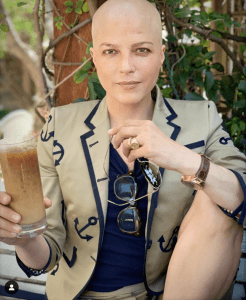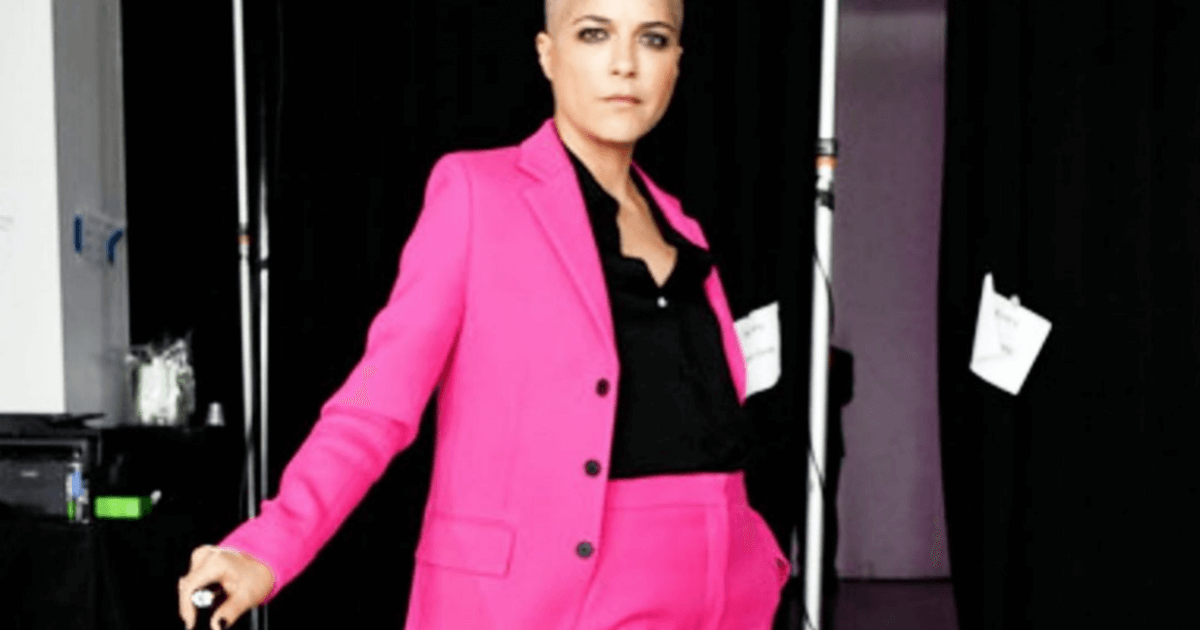Like a lot of women going through the difficulty of chemotherapy, actress Selma Blair seems to be focused on the tiny little moments that make life beautiful — this time, it was her son putting money under her pillow after she lost a tooth. Blair doesn't have cancer she actually has multiple sclerosis but because she's going through chemotherapy, which people usually have as treatment for cancer, we wanted to cover her journey with the treatment, to learn more about what she is using to cope along the way.
Coping During Chemo -- Selma Blair's Journey
Blair became famous after staring in the film "Brown's Requiem," and gained recognition for her role in the cult film "Cruel Intentions." Blair revealed she had been diagnosed with Multiple Sclerosis in October 2018, after suffering for years with unexplained symptoms like falling, dropping things, and foggy memory.
Read MoreHer supporters commented to let her know that they were in the same boat, “I lost so many back teeth after all the Chemo treatment I did,” and “Chemo can attack your teeth. [heart].”
And others commented on Blair’s strength and the beauty of her relationship with her son, “What a sweet boy! This made me cry. Selma you are so beautiful. You are So Amazing and Strong. What a wonderful spirit you have. You Are a True Blessing.”
In honor of Blair’s ability to find the beauty even during the darkest times, we wanted to include a little bit of information about dealing with tough emotions during chemotherapy treatment.
Information about dealing with anxiety during cancer
Anxiety and fear are totally normal reactions to the news of cancer, and acknowledging these emotions can be therapeutic and important to the healing process.
"I think the most important advice I would give to someone who has just received a cancer diagnosis is to find people whom they find as a source of support. To allow themselves to go through all of the different emotional reactions to that news," said Dr. Susan Parons, Director of the Center for Health Solutions/Center on Child and Family Outcomes at Tufts Medical Center, in a prior interview with SurvivorNet. Dr. Parsons did not comment on this case specifically.
"The anger, the frustration, the fear. The disappointment. Whatever those emotions are, figure out what's important to you and find those people that can help you realize that."
Dr. Susan Parons, Director of the Center for Health Solutions/Center on Child and Family Outcomes at Tufts Medical Center on dealing with fear and anxiety after a cancer diagnosis.
In times of frustration, it can be useful to a little bit of direction on specific ways to deal with it. A few of the most common ways to deal with fear and anxiety after a cancer diagnosis, that have helped people in the SurvivorNet community in the past, include:
1. Let your family and close friends know and let them help. So many cancer survivors tell us they want and need support but are often too preoccupied to make specific requests. Urge those close to you to jump in with whatever practical help they can offer.
2. Keep a journal. It can be extremely cathartic to let those feelings loose on paper. Grab a pen and a nice journal and chronical your different thoughts throughout the day.
3. Join a cancer support group. There are groups in nearly every community offering opportunities to connect with others going through a similar journey. You'll learn incredibly helpful insight from others who can tell you about what to expect and how to stay strong on tough days.
4. Consider seeing a therapist. Ask your doctor to refer you to a therapist so you can discuss your fears and concerns in a safe space. Often, vocalizing your thoughts and feelings rather than internalizing them can provide relief.
Selma Blair’s MS and chemotherapy journey
In an initial Instagram post, Blair revealed her chemotherapy treatment to the world, “Sunday. Rest. Gratitude. I write this with helping someone else in mind… Since chemotherapy and high doses of prednisone I have lost any ability to focus with my eyes.”
She said that her problems with vision extend to looking at her phone, and says she often starts to panic when she does, “(I find it difficult to be on phone so I am not on social media or communicating w friends through writing very much). Panic sets in. Will this be permanent? How do I get to one more doctor appointment? How will I work and write when I can't see and it's so painful?”
And that she always tries to tell herself it’s going to be alright, “And then a simmering of knowing. Underneath all the doubt. It will be ok. Take it smaller to each moment. Let the body heal. Nourish. Walk slowly. Burst into laughter. Give my nervous system a chance.”
She said that she’s thinking a lot about fear and uncertainty, and trying to look on the bright side,”I see how wonderful and kind people can be. I see how frightening it can be. Uncertainty. I am choosing to say this too shall pass. And my word… it's so beautiful today. Still cool in the shade and the whole day before us… we can do it. Breathe.”

And she also left a post script to update her supporters on her latest victories, “ps. My left leg is feeling the ground!!! #hsct Also… I have found much relief in settling my system with @montelbyselect #relax#hempextractcapsules . Thank you @montel_williams.”
Blair’s fans came her support, and wrote how grateful they are for her wisdom, “You give me inspiration I haven’t left the house in four days. I dont have a support system like you and I’m scared.”
“With each post I'm in awe of your honesty and bravery. I find myself wondering how you're doing and hoping that each day you feel a little stronger and better. From one mom to another: I believe in you and your ability to heal.”
Chemotherapy and Vision
Chemotherapy, hormone therapy, immunotherapy, and steroid medicines may increase the risk of cataracts. Cataracts are a problem in which the lens of your eye becomes cloudy. Cataracts can cause:
- Blurred, cloudy, or double vision
- Sensitivity to light
- Trouble seeing at night
Some chemotherapy drugs can cause dry eye syndrome. This is a problem in which your eyes do not produce enough tears. Symptoms include feeling as if your eyes are dry or have something in them.
If you are at risk for cataracts, you should have regular visits with an ophthalmologist (a medical doctor who treats eye problems).
If cataracts become serious, they can be treated with surgery. In this type of surgery, an eye surgeon will remove the clouded lens and replace it with a plastic lens. You will usually have local anesthesia and be able to go home the same day.
If you develop dry eye syndrome, your doctor may prescribe regular treatment with eye drops or ointments.
Learn more about SurvivorNet's rigorous medical review process.


